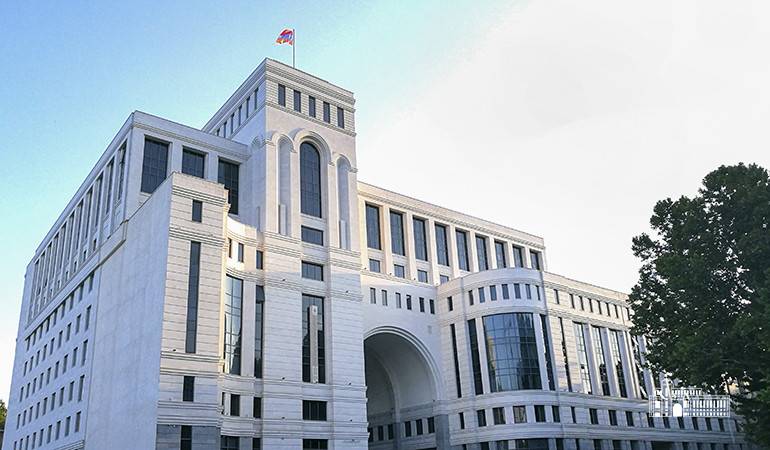Statement by the Foreign Ministry of Armenia on the 31st anniversary of the massacre of Armenians in Maragha
10 April, 202331 years ago, on April 10, 1992, the Azerbaijani armed forces carried out a preplanned brutal massacre of the peaceful population of the Armenian settlement of Maragha in Martakert region of Nagorno-Karabakh, as a result of which the settlement with a population of about 5,000 was completely subjected to ethnic cleansing, more than 50 civilians were brutally killed and as many were taken captive. This data has been documented in the reports of the human rights organisations such as Human Rights Watch and Amnesty International. The fates of many hostages have not been clarified to this day, and they are considered to have been forcibly disappeared.
The Maragha massacre was a continuation of the organised pogroms of Armenians in Sumgait, Kirovabad and Baku and one of the manifestations of mass crimes committed by the Azerbaijani authorities on the grounds of national identity. The preplanned crimes against the civilian population of Nagorno-Karabakh, war crimes, their impunity and glorification became part of Azerbaijan's systemic policy and took on new manifestations during Azerbaijan's aggression against Nagorno-Karabakh in April 2016 and on a larger scale during the 44-day war of 2020 as a result of which tens of thousands of Armenians were displaced also from Hadrut, Shushi and surrounding regions.
It is no coincidence that not only the Armenians displaced from Nagorno-Karabakh during 1988-1991 have never had the opportunity to return to their homes and exercise their rights, including managing their private property, but also nowadays, Azerbaijan violates the provisions of the Trilateral Statement of November 9, 2020, disrupting the return of displaced persons and refugees to Nagorno-Karabakh and surrounding regions, which should be carried out under the supervision of the United Nations High Commissioner for Refugees. Moreover, violating the norms of international law and the international obligations, nowadays the official Baku is populating with Azerbaijanis the Armenian settlements fallen under its control, the homes of Armenians, for example in the Armenian village of Talish.
It is also noteworthy that, grossly violating the decisions of authoritative international courts, Azerbaijan openly continues to desecrate, vandalise and destroy the Armenian religious, historical and cultural monuments and sanctuaries, having the aim to completely erase the Armenian trace from the territories that are under its control. At the same time, the hate speech towards the Armenians continues at the highest level. These actions have already been repeatedly condemned by international institutions.
31 years after the Maragha massacre, already for around four months Azerbaijan has been illegally blocking the Lachin corridor connecting Nagorno-Karabakh with the rest of the world. The deliberate creation of a humanitarian crisis in Nagorno-Karabakh, the periodic violations of the ceasefire and the aggressive actions of the Azerbaijani armed forces in Nagorno-Karabakh, the consistent targeting and terrorising of the peaceful population prove once again that Azerbaijan's goal is to subject Nagorno-Karabakh to ethnic cleansing.
Today we pay tribute to the memory of the victims of the Maragha massacre. In order to further prevent such crimes, we once again emphasise the urgency of taking the active steps by the international community, including by using the available international mechanisms.
The Republic of Armenia reiterates its commitment to the establishment of a lasting and comprehensive peace and security in the region, which is only possible through Azerbaijan’s rejection of its maximalist and aggressive policy and pursuit for fair solutions to the existing problems.


